Here we are again at the beginning of a new month which means it’s time to look back at the previous month. This time I started with 83 (!) pieces selected through the month of January. And nothing changes, it’s still a real workout to choose 10 to present to you. Without further ado, let’s have a look at January’s phenomenal pastels!

There are so many reasons I like this pastel. Without question the draughtmanship is pretty extraordinary but there is so much more to admire and enjoy. I love that you can still see the original head placement lines; and how about the contrast between the areas more complete (skin) and less complete (hair); the muted and limited palette that balances warm and cool; the subtle transitions between light and shadow; the pensive look with lips that may part slightly at any moment; and for me, most luscious, is the use of the white pastel to adjust and correct the contour at the girl’s crown and throat. Check out more of George Dawnay’s work on his website.

Who knew a pile of rocks could look so good? This exquisite pastel just goes to show, there’s a subject to paint everywhere if you look hard enough! The design alone is worth commenting on. Half close your eyes and have a look at the three perfectly proportioned rectangular shapes – the main one made up of the rocks in shadow, one created by the reflections and a small one created by the sunlit strip. Then there’s the control of values – for instance, the bulk of the rocks are in an even shadow and are mostly a mid-value punctuated by darks. The blues and pinks/purples used retain their value placement and create a sense of three-dimensionality with the blues reflecting the sky and the pinks and lilac revealing the rock verticality. Ironically, the reflection establishes a solid foundation that supports the pastel mass above. Sections close-up appear as abstract; drawback and all resolves into reality. See more of Bill Cone’s work here.

Moving from the solid reality of rocks to a mysterious reality that conjures up so many questions. What is this tree? Why is it important enough to record? Why is it on it’s own in the landscape? What is the meaning of the dark clouds? Is light about to explode through the clouds or instead, is the light being obliterated by darkness? And what is that light that rises (or falls) at the foot of the tree? There’s a narrative that sits quietly beneath this deceptively simple subject of sky and tree over a thin strip of land (that keeps the tree and the viewer grounded and gives the sky context). You look and think, that’s nice, but then you are drawn back, and then again and again you return. I think your frame of mind may dictate how you read the painting’s narrative. Have a look at more of Pascale Peterlongo’s work here.

With such muted colours, Bernadette Decesare creates a painting full of vibrant energetic life! So unlike the colourful and abstract work she is currently doing, this piece, done a few years ago (but only seen recently by me), still reveals clues to the direction she would take. The painting finds itself midway between reality and abstraction. Except perhaps for the daisies, take any section of the piece and you’ll find an abstract in the making. I love the way there seems to be a scraped effect, as if paint has been scrubbed or scraped off in areas (but we’re talking pastel here!). Perspective seems correct but is then distorted. Subject becomes background and background subject. Check out more of Decesare’s work on her website.

We go from the cool blues and whites of Decesare’s work to the warmth of the painting by Sarah Blumenshein. Blumenshein is a master flower painter but I have rarely seen a piece by her that tackles such a complex arrangement and variety of textures. It combines the softness of flower petals, the shine of metal, the smoothness of china, and the texture of fruit. The composition moves the viewer’s eye around the whole painting, leaving nothing out. I admire the way the whites in the crockery are handled with cool and warm colours, all holding their value. Notice the subtle shift in colour and value in the background, with each shift supporting the subject in front (on the right it’s dark and shows up the lightness of the vase and teapot). I love the way the reflections of fruit are different depending on whether they are reflected in metal or ceramic. There are also so many instances of reflected colour that may go unnoticed but which add to the whole, for example, the orange reflecting colour into the lemon on the plate. I also smile at the way the colours of the fruit and flowers mirror each other. Have a look at more of Blumenshein’s work here.

When I saw this painting by Michele Mozzone, I couldn’t help but smile – smile at the colours, smile at the unique perspective, smile at the mark-making, smile at the creative take on this subject. Going to Mozzone’s website, you’ll find she’s done many more in this series. This is another fine example of a crossover from reality to abstraction – you know what you’re looking at (a female figure in a bathing suit as seen from the viewpoint of looking up through water) and yet each area of this piece is an abstraction of colour and marks. Another thing is, one could read more deeply into the painting. For instance, one might view the painting as a metaphor for the way we see others through the distortion of our own perception and experiences. Wonderful!

Here’s a life drawing by Sandra Burshell where much is said with very little. A few vigorous lines describe a seated female figure who twists slightly and looks in the other direction. It’s lovely in itself but for me the magic comes from two things – the application of the complimentary yellow in quick and energetic strokes behind the figure, and in the brave placement of the figure on the lower part of the paper. I can imagine it would’ve been tempting to crop away the empty space above the figure yet by leaving it, this composition has much to say or at least makes us ponder. Does the space above the figure make this woman powerful or inconsequential? Does the space balance, in an opposing diagonal way, the movement produced by the angle of the head as she looks down toward her right? And if one is a viewer who likes to read more into a painting (I never used to but I seem to be doing it a lot these days!), the very light yellow seems to give the figure a kind of aura (or purity? of goodness? of spirituality? of light?). See more of Burshell’s work here.

We’re presented here with a view of a simple landscape in winter – a main tree, some scrub, some background trees, and some water. But in the colour usage, the energy and confidence of the pastel strokes, the composition, this painting has so much to offer the viewer. With a limited palette (how many colours do you count?), Weineck has managed to sort out nature’s complexity into simplified and distinct shapes. It’s a winter scene yet it’s full of warmth and life. This comes from the mostly warm colours used and the many small staccato strokes. I feel there’s a Japanese sensibility here in it’s clarity and in the notations of marks and calligraphic lines. I look at it and I’m filled with pleasure. See more of Weineck’s work here.

This painting is done on the same size of paper as above but takes a much wider view of the landscape. It’s a painting of that time of day after the sun has gone down when the world is no longer lit by sunlight and colours become muted. Being in Mexico as I write, I am particularly aware of this – you watch the sunset and all is awash in warmth. As the sun makes its final exit, it’s as if a light has been turned off and the landscape becomes grayer and seemingly, a little sad. But then we are happily witness to the sky and any existing clouds aglow with colour. This is a tricky moment to capture and I think Takeyce Walter has successfully held back the colour in the landscape, keeping it muted yet still retaining hints of colour. Of course, the sky itself is luminous. I love those few specks of light behind the trees revealing both sky and clouds. The eye moves nicely through the piece, moving down through the right set of trees, down through the reflection until we reach the near snow-covered bank. From there we move to the left and then up through the left set of trees back to the glorious sky. See more of Walter’s work on her website.

And finally we come to the work of Tor Falcon. This is a contemporary take on the traditional subject of vineyard. Here, the structured environment of the vineyard is in contrast with the more natural landscape beyond. The structured feeling is emphasized by the grid-like lines covering the two swaths of green that funnel us into the picture’s centre from where we explode out into the more random borrowed landscape. There are a lot of greens but they’re muted (grayed) in parts and also balanced out by the burgundy of the hillside and salmony-pink of the sky. The hand of the artist is apparent in the energetic strokes made over the larger shapes of pastel. The painting isn’t that large, being less that 12 x 12 in, yet has the powerful effect of a large piece. The design works beautifully whether the painting is seen as a thumbnail or expanded on the screen. I’m reminded of the work of earlier British landscape artists like Lawrence Gowing and his generation in Falcon’s simplification of the landscape into planes and large shapes, and his limited palette. Click here to see more work by Tor Falcon.
So there you go, January’s phenomenal pastels! So what do you think? Do any stand out for you? I’d love to hear which of the phenomenal pastels are your favourites or which give you inspiration for your own work or which surprised you. So please leave a comment!
Until next time,
~ Gail
PS. I wanted to show you how strong all the above paintings are when you view them in a very small size.












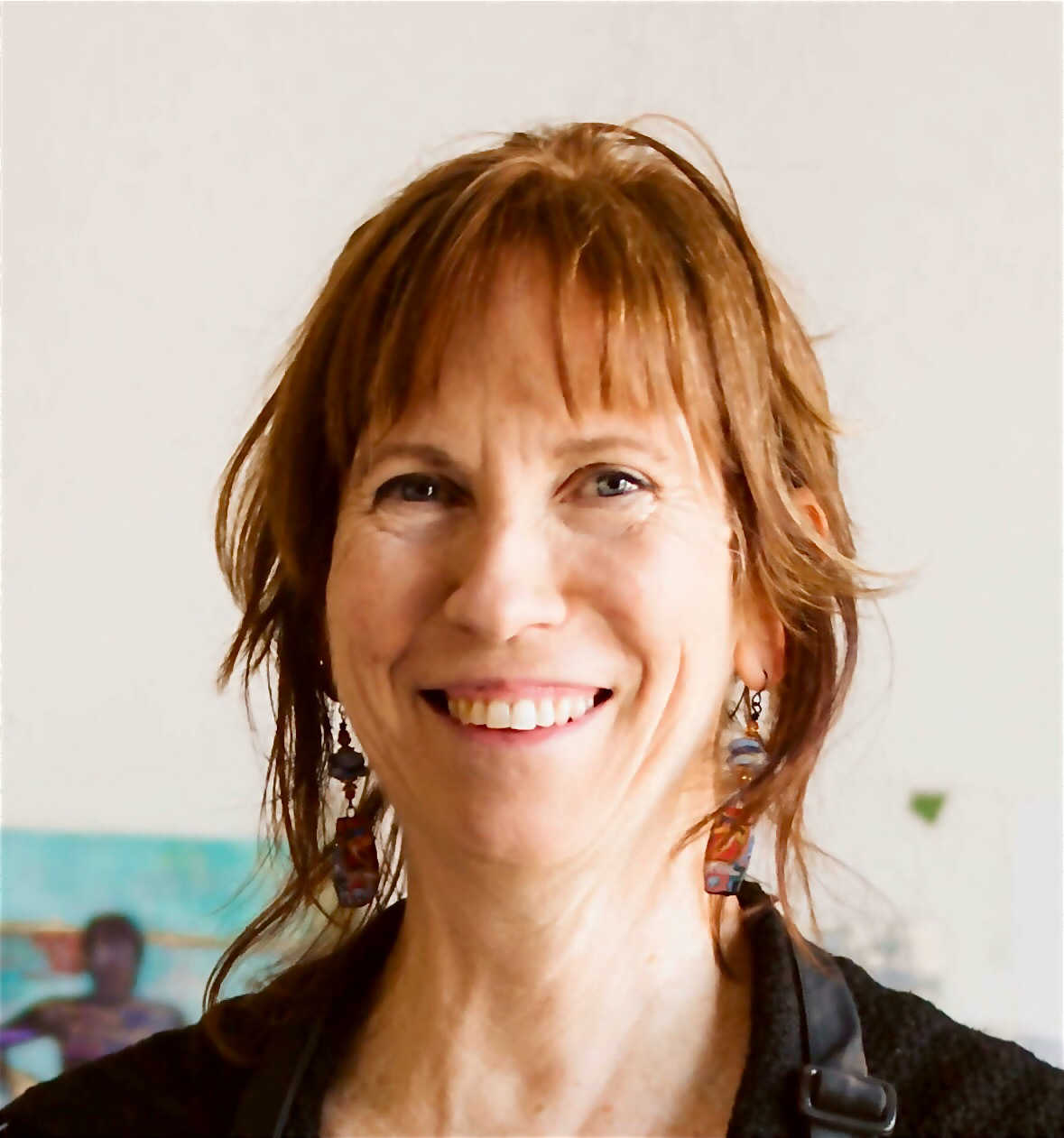

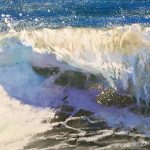

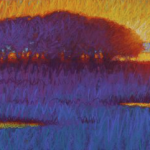




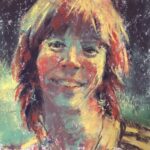
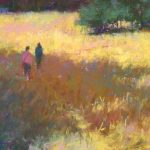




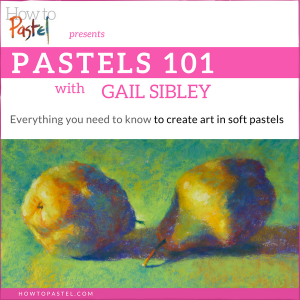

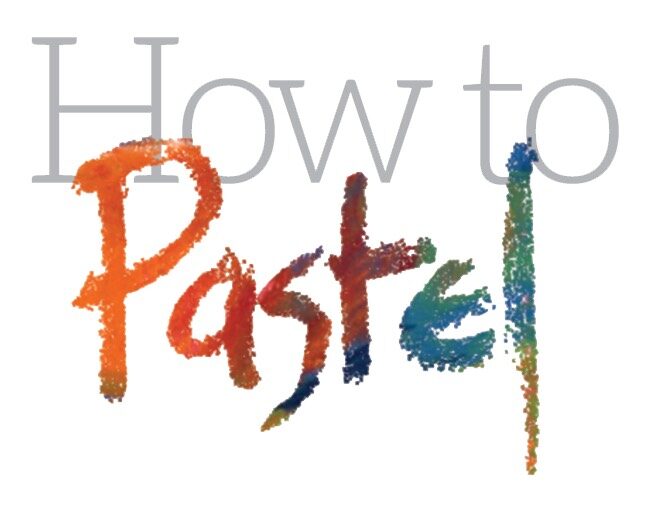

20 thoughts on “January’s Phenomenal Pastels!”
Loved these! Thanks for keeping up with this!
So glad you enjoyed them! I am encouraged to keep going on these month curations because of comments like yours 🙂
Many thanks for all these beautiful monthly discoveries…I love everyone for different reasons but I love overall the first one, the portrait of G. DAWNEY (Really wonderful for me) and the pastel of B. Decesaere. Love your idea of sharing
I’m so glad you enjoyed them all and I’m also glad you shared your favs!
Wonderful selections, as usual! I particularly enjoy your comments about each piece. They force me to take a closer look. Thank you for taking the time to publish this.
Jane, I’mm happy that my comments make you look closer – that’s a reward for me! Creating the comments makes me slow down and discover why it is I’ve chosen these pieces. It’s a good (if time-consuming!) practice all round.
Great to see a fellow local pastelist on your list Takeyce Walter on your January list.
Great painting and really nice person. Teaches at the Saratoga Arts Center near me.
Best to you Takeyce
Thanks for adding to Takeyce’s info. I just realized I forgot to mention that the one here is from her 30 paintings in 30 days challenge collection. Some amazing paintings there!
Gail who have the touch in honoring artists with such honesty and thought provoking information. You ‘ve made me happy today. Thank you
Bernadette, your work is so wonderful and it was a thrill to see earlier work!!
This is truly a feel good moment….thank you.
😀
I always look forward to your monthly review. These works are varied and interesting – many styles, many palettes, many points of view. I am particularly taken with Takeyce Walter’s landscape. She sets a wonderful mood with deep and rich color. Thank you.
Nancy, it’s always my hope that the work will be varied and interesting in many aspects so I’m happy you found them to be so. Glad you shared your favourite 🙂
Thank you, Gail, for including my painting in your January favorites! What a treat! I enjoyed all the paintings!!
Sarah, your paintings have come so close before in previous months so I was particularly delighted to include your pastel this time!! Glad you enjoyed all the others too.
Hi there….
Thanks for yet another impressive lesson in how to look at paintings.
George Dawnay is a new name to me. What a beautiful drawing.
In response to your comments on the three rectangles, it’s interesting to see the painting in relation to both Rothko and Diebenkorn’s Ocean Park series.
Was delighted that you included Sandra Burshell. Jimmy Wright and I were agreeing on how much we like freshness of her figure studies.
Hope you are enjoying your time in Mexico.
Duane
Thank you Duane! I’m happy I could introduce you to a new artist: Dawney’s work is stunning!
I love that you brought up Diebenkorn and Rothko’s work in relation to the rectangular design of Bill Cone’s work. It’s all about that underlying structure isn’t it?
I was delighted to include Sandra Burshell’s work here as I too have been excited by her figurative work.
Mexico was marvellous. Now I’m back to the rather damp and grey Northwest but still, the snowdrops are out and the plum tree blooms beginning to burst open!
Your comment is awaiting moderation.
Gail – thanks again for including my pastel “Retreat” among this month’s amazing choices.
Thanks to Sandi and Nancy for the kind words as well!
You’re welcome Takeyce. I enjoyed all 30 of your paintings!!